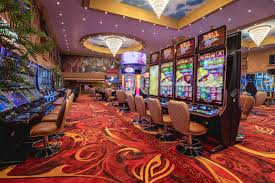
The idea of hospitality may date back to ancient Greece where the concept of xenia originated. This concept of ‘guest-friendship’ has become a hallowed rule in hospitality bestowing respect from hosts to their guests and in return, from guests to hosts.
The hospitality industry was one of the most impacted by the COVID-19 pandemic, with worldwide tourism grinding to a halt, the closing down of hotels, restaurants, theme parks and cinemas around the world ensued. However, the resilience of this sector is apparent, with estimates predicting growth of 15.1% in the global hospitality market size from $3,952.87 billion last year to $4,548.42 this year. Undertaking one of the many hospitality courses on offer can be a great way to enter this dynamic industry.
As a result of the pandemic, there has also been a shift in people’s attitudes and values towards their consumer habits. Whether it’s staycations or sustainability, new trends have emerged from this period which the hospitality industry will have to take into account. In this article, we will look at some of the ways the hospitality industry is adapting to meet and serve the consumer.
Staycations
People love to travel, but with a greater awareness of climate issues, many are seeking ways to reduce their carbon footprint and help the environment. In addition, the travel restrictions placed during the pandemic have helped fuel the rise in staycations. Although international travel is opening up once more, it comes with its fair share of bureaucracy, testing requirements as well as uncertainty leading many to dismiss foreign travel in favor of a holiday on home ground instead.
This marks an opportunity for businesses to create more meaningful hospitality experiences in their local area. Whether it’s more indulgent hotel amenities, a focus on natural scenery, greater package deals or flexible cancellation policies, hospitality businesses are responding to this trend and investing more time in their local communities.
Bleisure Travel
Many companies are adopting a more flexible or hybrid approach to work, and greater numbers of people are working remotely or in co-working spaces. This blending of business and leisure is becoming more commonplace. Whether it’s a conference or meeting, many work trips are being extended to become mini-vacations.
Hospitality venues such as hotel spaces are often used as make-shift offices for such travelers as well as for locals who are looking for a change of environment. This rising trend offers a huge opportunity for hotels to capitalize on by servicing the needs of this new segment through free, fast and reliable Wi-Fi access, sufficient plug points, great coffee and snacks, meeting rooms, comfortable furniture and appealing designs.
Sustainability
Sustainability has become an important issue in many peoples’ minds and one which drives their spending habits. As greater concern is given to the use of natural resources by individuals and businesses, the hospitality industry is adopting sustainability practices in order to retain and attract customers.
Whether it’s reducing paper and plastic usage, increasing energy efficiency, choosing local products or conserving water, sustainability issues are shaping the way the hospitality industry goes about its business.
Today’s consumers care about sustainability and want to know that the businesses they give their custom to are following environmentally sound practices. This is especially the case with millennials and Generation Z who are often willing to pay more for goods and services that are eco-friendly and ethically sourced. To stand out when it comes to sustainability, hospitality professionals can do the following:
- Conserve Energy: Businesses can begin by training their staff on energy-saving practices such as turning off lights, adjusting thermostats and reducing water consumption. Energy conservation can also involve reminding guests to be mindful of their electricity consumption. Businesses can also install green technology such as solar panels and energy-efficient light bulbs.
- Water Conservation: Many eco-friendly hotels are implementing innovative ways to conserve water such as adopting bed linen and towel reuse policies, fitting fixtures such as low-flow showerheads and faucets, fixing leaks, educating staff on the optimum washing machine loads and requesting that guests be mindful of their need for laundry services. Implementing efficient water conservation systems such as greywater reuse for irrigation and toilet flushing can also reduce water consumption.
- Waste Reduction: Food waste is one of the main areas where hospitality businesses can reduce their waste. This can be achieved by sourcing local produce or growing them on-site. This will also ensure fresher and better quality products that will last longer. Unused food can be composted or donated to local food charities and kitchens rather than thrown away. Other ways to reduce waste include using water filters in place of plastic bottles, reusable soap and shampoo dispensers as well as less reliance on paper products such as leaflets and brochures.
- Organic Products: The use of organic products means a smaller carbon footprint. By switching to products such as natural toiletries, local and pesticide-free foods, chemical-free cleaning products or biodegradable packaging, the hospitality industry can demonstrate their commitment to sustainable business practices to their clientele.
These are just some of the ways the hospitality industry is embracing emerging trends within its sphere.

